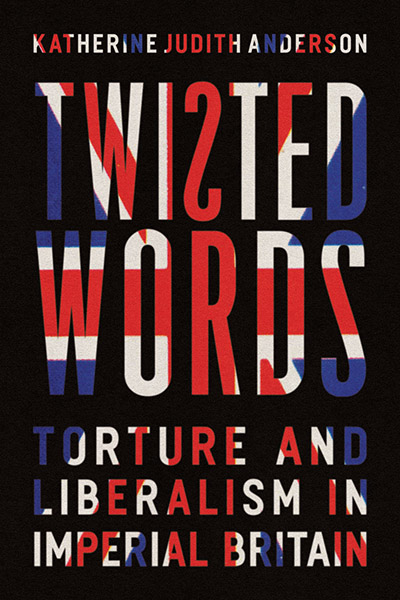“In this innovative and original study, Katherine Judith Anderson explores the intimate entwinement, and evolution of, torture … Will prove of value to scholars in a wide range of disciplines.” —Deana Heath, Critical Studies on Terrorism
“Anderson wants her study to be read as a contribution to further thought, so that we will not be condemned to making the same mistakes over and again. That is a fine end to a fine, scholarly book, reminding us why the study of literature matters. The thoroughness of Anderson’s work is very impressive [...], and it really makes a valuable contribution to Victorian studies.” —A. G. van den Broek, George Eliot Review
“While Twisted Words is groundbreaking in terms of the extraordinarily broad range of literary and non-literary Victorian texts it surveys, its most original feature is its consideration of violence in torture as not sadistic but used to advance the agenda of the state. Scholars of various disciplines will find Twisted Words both provocative and challenging.” —Jarlath Killeen, author of The Emergence of Irish Gothic Fiction: History, Origins, Theories
Twisted Words: Torture and Liberalism in Imperial Britain examines torture across the fiction, periodicals, and government documents of the British Empire in the latter half of the nineteenth century. Placing acts of torture and words about torture in relation to changing definitions of citizenship and human rights, Katherine Judith Anderson argues that torture—as a technique of state terrorism—evolved in relation to nineteenth-century liberalism, combining the traditional definition of exceptional acts of cruelty with systemic, banal, or everyday violence. Analyzing canonical novels by George Eliot, Anthony Trollope, and George Meredith alongside an impressive array of lesser-known fiction through the lenses of critical terrorism studies and political, legal, and phenomenological theory, Anderson rethinks torture as a mode of reclaiming an embodied citizenship and demonstrates how the Victorians ushered in our modern definition of torture. Furthermore, she argues that torture is foundational to Western modernity, since liberalism was, and continues to be, dependent on state-sanctioned—and at times state-sponsored—torture, establishing parallels between Victorian liberal thought and contemporary (neo)imperialism and global politics.



 The College of Arts
The College of Arts